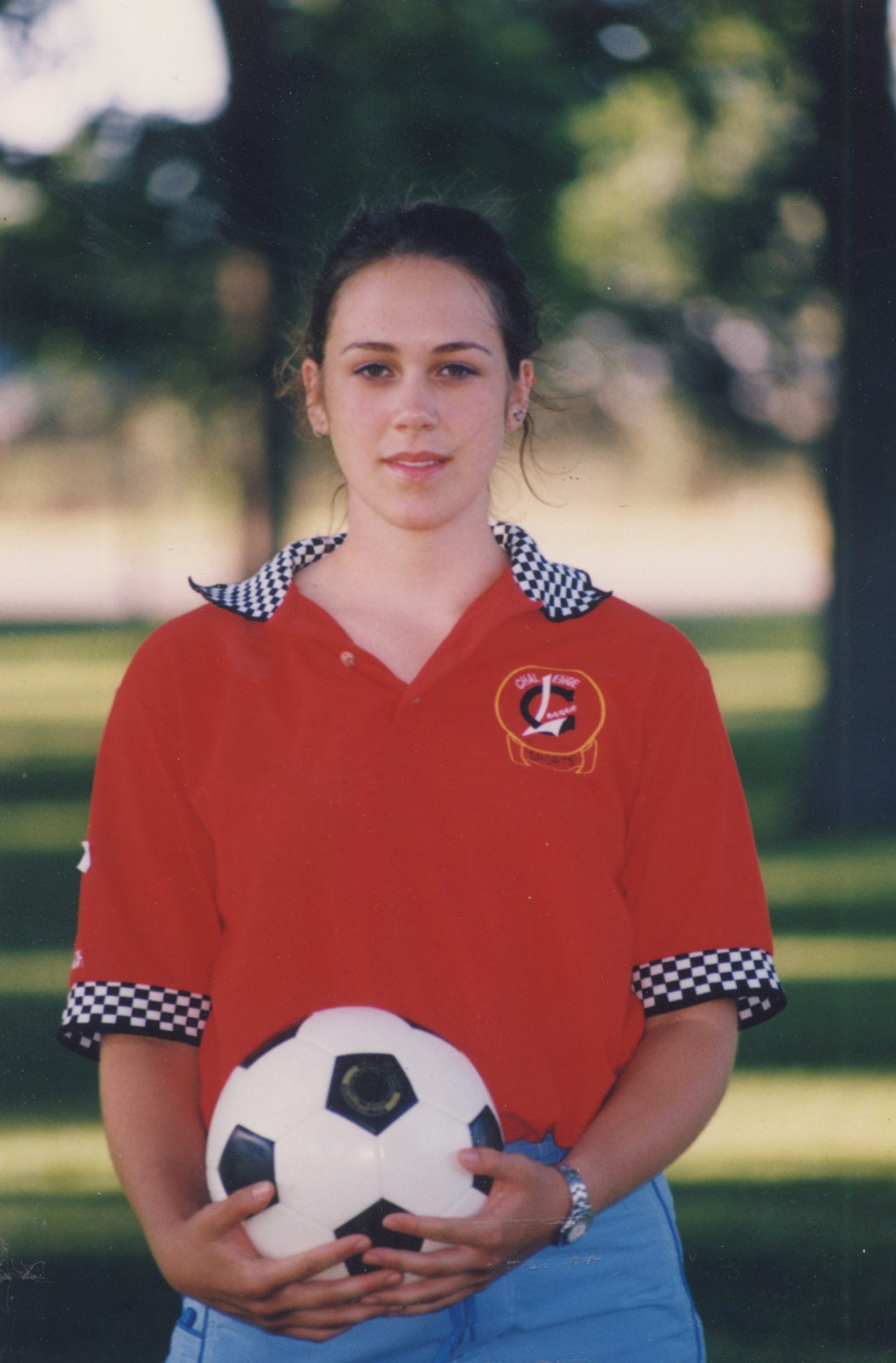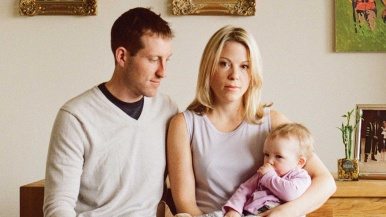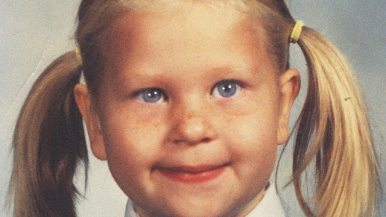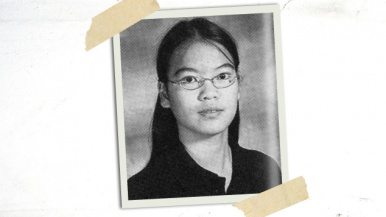Funny Grocery Store Pics Rape Face
I was raped three times in less than 10 years. I knew all of my attackers. This is my story.
When I was 16, a friend raped me in his parents' basement. They were having a party upstairs—a drunken din of Springsteen and raucous conversation. We'd retreated into the rec room. He shut the door, retrieved some beer he'd swiped from the party and took a purple condom out of his pocket. He tried to charm me into a sip of his beer, grinning hard even as I said no. Harder still when I told him to put the condom back in his pocket.
When he kissed me, he tasted like beer, hamburgers and barbecue potato chips. I enjoyed kissing him. It reminded me of the way I held Pop Rocks underneath my tongue when I was a kid, pressing hard against the candy's zing. I liked the curved bow of his lips, the way his body made a question mark over his guitar, how his toes turned in like a pigeon's when he walked. He was the first boy I allowed below the waistband of my Bluenotes, and underneath my fluorescent padded bra.
Once we were on the floor, he asked me to have sex. I said no. I wasn't ready.
And he said, "Come on, Lauren."
He said, "I'll be gentle."
He said, "I know you really want to because of the way you're kissing me right now."
Again I said no. No and no and no. He pushed down his pants anyway and put on the condom. It smelled like grape soda. Then he unzipped my jeans, his arm a crowbar against my chest. I kept saying no, as if it could save me. As if he'd magically stop if he knew how badly I didn't want to do it. I said no when he inched my pants down. No when they bunched into an accordion at my feet. No when he bore down on me, his weight and movement burning the rough carpet against my skin, turning it bloody and raw. His sudden invasion tore me from my body. Then the pain knocked me back into it. I screamed louder. I made my body into a flopping fish, struggling against the air.
When I kicked free, he followed me into the hallway, tackling me to the ground before I made it to the first stair. His clothes were back on and he was no longer interested in sex. His hands crunched my wrist bones, pinning me down—he desperately wanted to stop me from telling the adults upstairs. He told me that he had gotten carried away. That he'd just wanted me so badly he couldn't help himself. What he'd done wasn't rape, he said—so don't tell anybody that it was. Nobody would believe me anyway. His face was a kaleidoscope through my tears. I believed him. I agreed to everything. I was scared. More than anything else, I wanted him to be right.
I was in such a fog that I don't remember how I got home. Later that night, I tallied the damage. Rug burns on my back. Thumbprint bruises on my thighs. Blood on my underwear. A tight pain in a place I never knew could hurt. I was relieved. All of it was easy enough to hide. So was that unquantifiable hurt: the slow break on the inside that nobody could see.
The next day at school, he followed me through the halls softly chanting, "I popped your cherry. You're not a virgin anymore." When I pleaded with him to stop, he called me a bitch and a slut. The message was clear. If I told anybody what had happened, he'd tell a different story—a louder one. I'd be one of those girls who lied.
At night, I huddled under my stars-and-moon comforter and wished I could die. Too scared to tell my parents what had happened, I learned to sob soundlessly into my pillow. My daytime self had her shit together. I kept busy volunteering and working as a camp counsellor for kids with disabilities. I graduated at the top of my class, got a boyfriend, went to kick-boxing six times a week. But at night, all my pain floated to the surface. It took me hours to fall asleep, and the nightmares kicked me awake. I had assumed rape was a physical injury. I thought that once the bruises on my thighs and arms faded, I would be healed. I didn't account for the hollowing out of my mind, my sense of self.
For half my life, I kept silent about my rape. It was a shameful secret lodged in my throat, ready to choke me every time I contemplated telling. I was afraid of how my loved ones would react—that they'd confirm it was my fault or refuse to believe it happened in the first place. My rapist's threats created this silence, but I was the one who kept feeding it. Eventually, my secret became as destructive as the rape itself.
Last winter, during the Jian Ghomeshi trial, I felt like I was the one being interrogated. I listened to Ghomeshi's lawyer, Marie Henein, scrape away the credibility of his accusers, and realized her questions were ones I'd asked myself a thousand times. Why couldn't I remember all the details? Why didn't I tell anyone? Why did I act like nothing had happened? I could imagine more: Why didn't I fight harder? Had I led him on? Did I deserve it?
The Ghomeshi case was a turning point in the new politics of sexual assault. It coincided with the phrase "rape culture" breaking free from women's studies classes and into mainstream conversation. News reports catalogued reporting rates and rape kit statistics. Suddenly, the term "trigger warning" was everywhere. Twitter hashtags sprouted like mushrooms: #BeenRapedNeverReported, #YesAllWomen, #BelieveWomen. Activists encouraged women who'd been raped to toss out the word "victim" and call themselves survivors.
All I could feel was a stifling pressure to be strong and resilient. I appreciated the support, but I couldn't help thinking that the conversation I was hearing tended to erase the flesh-and-blood women who'd been raped. It transformed my personal experiences into a political rallying cry.
My feminist politics dictate that, as a survivor, I am supposed to be unashamed and even outspoken about what happened to me. And yet in all the conversations I had during the Ghomeshi case—with family, with friends, with colleagues—I never once told my story. I shunned the sisterhood at every turn. The thought of admitting it, even in a hashtag, was suffocating. An admission would invite scrutiny, not support, or so I told myself. In all the chatter, I've had a hard time finding myself: a woman undone, trying to move on with my life. It took me 15 years to realize that the only way to put my broken pieces back together is to tell my story a hundred, a thousand times—until that shame goes away.
In the years after my rape, I was a textbook case of untreated PTSD. Flashbacks blazed without warning. For years, I'd freak out anytime a man touched my breasts. I would shut down during sex. When I had a panic attack, my heart fluttered, sweat dripped down my back, my breath hiccuped. It felt like I was dying. Even today, the smell of grape soda makes me gag.
I tried to suppress my panic attacks—which only bred more flashbacks. Getting treatment would have meant confronting what had happened to me. I thought my parents would be ashamed of me if I told. I believed it when my rapist called me a slut, blamed myself and was sure everyone else would, too. Under the weight of all this, I tried to control my body with obsessive dedication.
When I started to eat less, people complimented me on my shrinking waistline. I wasn't trying to get skinny. Not exactly. I wanted to reduce myself, to abuse my body back into submission. It had been seized from me, and I wanted to simultaneously reclaim it, punish it, make it feel safe. I meticulously counted yogurt-covered raisins into Tupperware every morning. I gave up on my family's Friday pizza nights and instead ate dry lettuce sandwiches on whole wheat. I smiled as my hip bones began to jut out and my stomach turned concave.
Then I cut myself for the first time. It was Easter, a few months after my rape. I was in our kitchen, and my parents and little sister were outside waiting for me. We were all going to walk to the lake, enjoy the first blush of warm weather. I didn't think about what I was doing—maybe I wanted the physical pain to cancel out the emotional pain. I pulled out a bread knife and ran the serrated edge along my fingertips.
Relief bloomed along with blood. I stared at the beading crimson and my mind quieted. For an instant. I was confused about what I'd done. Though I was undeniably repulsed, I also liked it. Cutting expressed all my anger against my body's betrayal, a swift and desperate act of self-hatred, rage. It was also a twisted sort of affirmation: only I had the power to hurt myself. I craved any sort of control because I felt I had none. That one cut calmed me in a way nothing else had since my rape. And that scared me. As I ran into the bathroom to get a Band-Aid, I vowed I'd never do it again.
By the time I hit university, I'd slept with a few other guys and learned that sex made me miserable. While my friends delightedly talked about their new boyfriends, their flings, their discovery of sex, I was numb. I coveted their normalcy. When I saw my friends engage in loving, respectful relationships, I was baffled and sad. I believed I'd never have that.
Meanwhile, my self-harm continued. I started to regularly cut after sex. On the rare occasion that I enjoyed a sexual encounter, I cut even harder—sex made me feel like a slut, as if pleasure in the present somehow meant I'd wanted to be raped in the past. Once, my university roommate saw the gashes on my upper arms. When I refused to talk about it, she hid all the knives and scissors in our house. We resorted to blunt butter knives for months, crookedly sawing carrots, cheese, peppers. For a while, I used a small screwdriver to cut, and kept it attached to my key ring for emergencies. I'd duck out from dinners, dates and class whenever my inner turmoil threatened my outward calm.
As I got older, I let my value rise or fall according to the men around me. I saw no problem in compromising myself to get that approval. I was attracted to anyone who was attracted to me. I stayed with men who were cruel to me for months. I became accustomed to boyfriends who called me "bitch" and "whore." I always agreed to sex, even when I didn't feel like it. When one boyfriend started to rate my behaviour daily, tallying my good and bad conduct, I accepted it as a helpful way to make me better.
I wasn't surprised when I was assaulted again. It was a hot summer night a few weeks before I was to start my second year of university. I'd gone to a big house party in my hometown. I wasn't drinking. I was outside on the backyard patio when I saw my high school rapist walk in with a date. As usual, that night I'd rimmed my eyes with black eyeliner. My hair was dyed Crayola colours, and safety pins held together my deconstructed clothes. His new girlfriend looked a little like me. He saw me and smiled; it had been a year since I'd seen him last, three since he'd raped me. That smile was enough to undo me.
I turned my back to him and started drinking recklessly, gulping down more every time I heard him laugh, then her. Vodka, beer, coolers—I didn't care. I wanted to feel invincible, even if it was fleeting, even if it was fake. I blacked out on my way home and woke up in a nearby alleyway. There was a guy from the party on top of me.
Even now, the memory is hazy—trapped behind a gauze of alcohol and unconsciousness. This time there was no condom. A streetlight melted yellow. Anyone could see us, but the streets were empty. I remember the hum of insects. My pants were pulled down, his fly was open, and he was inside me. When I screamed, he lost his erection. "You're not worth it, anyway," he told me, nonchalantly, as he walked away. It never occurred to me to report. It was so easy to convince myself it was my fault: I was drunk, I was irresponsible, I was asking for it.
After that, I began to dissociate more and more during sex. My mind would float away. It happened indiscriminately, whether I was with a casual fling or in a serious relationship. Sometimes my boyfriends noticed; sometimes they didn't. Occasionally they stopped, tried to get me to talk about it. I couldn't explain what had happened, where I went. Some of them became angry and left, hastily dressing and bolting out the door. Others stayed. Even when I had boyfriends I liked, I couldn't connect. I cheated on many of them, ruining any chance of a healthy relationship.
One night, a guy I'd been casually seeing for a couple of months called late and asked to come over. He was kind, funny and considerate. I trusted him. When he arrived, he wore a cologne of beer, and he was slurring his words. I suggested we just go to bed, and he agreed. In the bedroom, though, he kissed me hard, pushing me to the mattress.
I couldn't move; he was huge. "I want to go down on you," he told me. I said no. Oral sex often triggered my panic attacks—it was too intimate, too vulnerable. I hated it. As he yanked down my pyjamas, I thought, "Not again." It's hard to muster anger or disbelief when this stuff keeps happening. Instead, I felt a plunging sadness. This was my lot in life. I pushed at his head, my fingers a starfish in his hair. I said no over and over. But nothing stopped it. I sobbed the whole time, tears pooling in my ears, flooding onto the pillow. There was no intercourse, because he passed out just as he began to climb up my body. I lay awake for a long time after, staring into the darkness.
The next morning, he smiled. When I asked if he remembered the night before, he told me no, not really. "Was I that drunk?" He seemed sheepish, bashful as he ran his hand through his mussed and flattened hair. I'd imagined confronting him, pictured scenarios all night, planned exactly what I'd say. Instead, I stayed silent. I told myself he'd made a mistake. Then I made him pancakes for breakfast.

Over the years, I've thought about reporting my rapes to the police. I've talked myself out of it. If charges were laid, I'd make a terrible witness to my own assaults.
Acquittals often pivot on extraneous details: the colour of a carpet, the make of a car, whether he held you down with his right hand or his left. I don't remember certain details, at least not with the movie-reel clarity needed to land a conviction. The legal system requires proof beyond a reasonable doubt. I'd behaved in ways that didn't make sense. I'd smiled and made pancakes. Facing the antagonism of an interrogation hardly seemed worth it.
I know several other women who've been assaulted, and none of them went to the cops. Conservative estimates peg reporting rates at less than 10 per cent, while other studies show that up to 94 per cent of women don't tell the police. When I asked a lawyer I know how often women are blamed or implied to be at fault, she went silent. "All the time," she eventually answered. And when I asked what she would do if she were raped—would she report it?—she went silent again. Finally, she told me she wouldn't feel safe. It reminded me of something my dad had told me once. He'd been a juror on a sexual assault case in Durham region. The victim had been blackout drunk when she was raped, and the accused had snuck into her room after she'd left the party to sleep. Every time the defence mentioned the assault during questioning, they called it "intercourse." Eventually, my dad said, the young woman lost it, screaming: "It wasn't intercourse, it was rape!"
The decision to report is often just as damaging as staying silent. In one supremely bungled 2009 case, an 18-year-old known as D. M. in Lynwood, Washington, reported her rape. Police did not believe her and instead charged her with filing a false report, forcing her to take a plea deal of probation. Two years later, her rapist pleaded guilty to 20 counts of rape and associated felonies. In 2014, an Alberta judge named Robin Camp berated a 19-year-old girl who was testifying about her sexual assault. "Why couldn't you just keep your knees together?" he asked her in court. In his ruling, he added, "She hasn't explained how she allowed the sex to happen if she didn't want it." Last year, he was appointed to the federal court.
At age 25, I'd been raped three times in less than 10 years. It's common for a woman who's been raped once to be raped again, for destructive cyclical patterns to form and flourish. Each assault primed me for the next one, told me there were no safe places, or people, and that my value was measured by what my body could provide. I invited dysfunction into my relationships like an old friend.
In 2011, I married a man I'd met while working as a reporter in Yellowknife. He see-sawed between charmingly sweet and cruelly manipulative. When I confronted him about his quick coldness and quicker temper, he'd tell me I was imagining things. He'd say I misinterpreted his tone—how could I think that was yelling? He loved me. How could I think he wasn't supportive? I demanded too much.
The years of trauma were bubbling up. Some days, my anxiety took over and I couldn't leave the house. I'd have panic attacks while doing my hair, making the bed, tying my shoes. I'd sit bundled tight in a coat, hat squashed over unwashed hair, staring at my door. My hamper barfed dirty clothes, pizza boxes made pyramids under my sink, and the fruit in my fridge reeked of rot.
In March 2015, I made an appointment with a therapist who specializes in working with women who've been assaulted or abused. Calm but forthright, she's the type of woman who wears billowy clothes the colours of sand yet drops F-bombs with abandon. I liked her immediately. During my consultation, she asked why I was there. I blurted out that I was raped. More than once. Then I told her about my first assault, the details spilling out of me like gum balls from a broken candy machine.
She joked that my compulsion toward overachievement and people-pleasing was finally doing some good: I wanted to ace therapy. When I talked about my assaults, it was like shaking off layer after layer, each time getting a little closer to the real person underneath. In many ways, that person was a stranger—she was worth good things, love, support, happiness.
Under my therapist's guidance, I confronted one of my exes—the one who'd forced oral sex on me that night many years ago. He agreed to talk over FaceTime, even though I was vague about my reasons for contacting him. Rivers of sweat formed along the fortune-teller's lines of my palm. I was so scared he'd deny it that I couched the conversation with phrases like, "My therapist said that…" and "To move forward on a path of healing, I need to…." He told me he didn't remember, but he didn't deny it. I wondered if he was lying. He told me he was so sorry he'd hurt me. He cried.
The experience ultimately buoyed me. I had spoken out and the world didn't end. Maybe I'd finally be able to talk about all the things I'd kept hidden. A few weeks later, my husband left me for a woman he'd met on a business trip. It was too late to save my marriage. But maybe I could save myself.
Last June, I saw my own experiences reflected in the media, when an ex–Stanford swimmer and one-time Olympic hopeful named Brock Turner was convicted of raping a woman known as Emily Doe while she was unconscious. Like my last rapist, Turner was quick to downplay his actions and blame his behaviour on alcohol. His father wrote the court that his son's dashed dreams were a "steep price to pay for 20 minutes of action." His high school girlfriend said he was "kind, loving, respectful, relaxed," a guy who could never rape someone or "deserve" what happened to him. My high school rapist was nice and popular, too. Many women are assaulted by men they know and trust. I was.
During Turner's sentencing hearing, Doe addressed him directly in court. She told him how she unravelled after her rape—how her damage was "internal, unseen" and something she carried with her. I heard echoes of myself. Across the Internet, I saw Doe's letter described as powerful and brave. Her frankness seemed radical: few women speak so plainly and publicly about their experiences, and fewer still see their remarks go viral.
A few months after I started seeing my therapist, she urged me to tell one other person what had happened to me. It was like a Ping-Pong game, the two of us facing off from opposite leather chairs in her earth-toned office. Me: "But nobody will believe it." Her: "Your friends and family may surprise you." Me: "They'll think I'm lying." Her: "But you're not." We volleyed for hours.
I started by telling my mother. Then I told one of my closest and oldest friends, then another friend, and another, and another. I was shocked at how kind they all were, how receptive, how they all believed me. I also learned how many of my friends had stories similar to mine. Research shows that 25 per cent of women have been sexually assaulted. I'd heard the one-in-four statistic in panels, seen it emblazoned on posters. My silence had kept me from realizing it was reflected in my own circles.
My therapist armed me with book after book to read, theories to research. I learned more about the awful normalcy of my experiences, and the patterns of PTSD, anxiety and depression among women who'd been sexually assaulted. I learned how my brain had betrayed me, tricking me into believing that negative, abusive behaviour was thumbs-up normal. I learned that my brain could be rewired, retaught. And I learned that the stranglehold of shame and anxiety could loosen. She also assigned all sorts of tasks that scared the shit out of me: taking public transit (alone), walking to the grocery store (alone), saying no, letting people hug me. The next time one of my friends said, "I really wish I could hug you, but I know you don't do hugs," I responded, "No, I hug now." Like I'd just committed to some badass daredevilry.
I'm working on everything these days. Sometimes I even laugh when I try to explain my old thought processes to people; I finally understand why they always look so confused. It sounds ridiculous out loud. Of course a rape is not a woman's fault. Of course it doesn't make her worthless. Of course it doesn't mean she deserves it again and again. Of course it doesn't make her a slut. Of course there's nothing she could have done differently to prevent it. I have to tell myself these things every day.
I passed my one-year mark at therapy recently. I didn't even realize it. I was chattering on about an upcoming trip I had planned when my therapist interrupted me. "You know," she said, "a year ago I started treating you because were too afraid to go buy apples at the store." When she asked me how I felt about it (yes, that really is a therapist's favourite question), I couldn't answer. I wasn't sure how to describe hope. I wasn't sure how to quantify the progress I'd made.
A few weeks after, in search of an answer, I dug out my old journal. Its black, pebbled cover was dusty. It's a decade's worth of black ink and it makes for a tough read, to know that I believed all of it once. When I got to the end, dated May 15, 2015, I was surprised to see I'd written my old self a goodbye note—a promise that I wouldn't go back to my old way of thinking. I'd forgotten all about it. It was angry and declarative. After more than 15 years of pain, I'd told myself that I had to stop letting people convince me that I was nothing. I had to stop convincing myself that I was nothing. "Because I'm not," I wrote. "I never was."





coffmanprotiong1936.blogspot.com
Source: https://torontolife.com/city/lauren-mckeon-fifteen-years-of-silence/
0 Response to "Funny Grocery Store Pics Rape Face"
Post a Comment